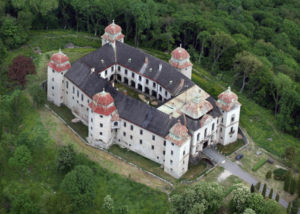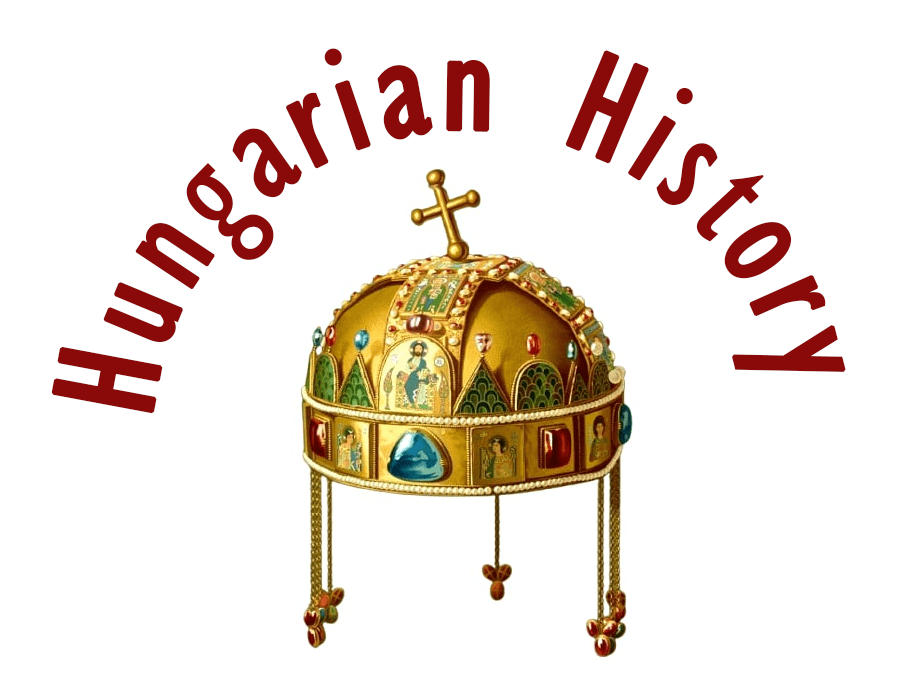Baron Forgách Ferenc, a leading Renaissance Priest

Baron Forgách Ferenc de Ghymes et Gács (c. 1530 – 19 January 1577) was a Hungarian prelate of the Roman Catholic Church, who served as bishop of Várad (Oradea) and Chancellor of Transylvania between 1571 and 1575. His father, Forgách Zsigmond, had been the Treasurer of the late King Lajos (Louis) II who died at Mohács in 1526. (I am using the Oriental name order for Hungarians where family names come first.) His family derived from the Hont-Pázmány kindred and held high positions in Hungary. Here is the family’s ancient nest at Gács / Halics, in Slovakia:

His elder brother, Forgách Simon wanted him to join the army like himself but Ferenc listened to the encouragement of his mentor, the Latinist Oláh Miklós aka Nicolaus Olahus, and became a priest of the Roman Catholic Church.

https://www.hungarianottomanwars.com/essays/who-was-olah-miklos-1493-1568/
In the first part of his career, he sided with the Habsburgs. He was King Habsburg Ferdinand`s envoy to Regensburg where he delivered such a fierce and touching speech in 1558 that the Imperial Estates voted 40,000 infantrymen and 8,000 cavalrymen for the Ottoman wars. Later, he was disappointed in the next king, King Habsburg Maximilian`s tyrannic rule because he took part in the fights against the Ottomans in 1566 and realized that the Habsburgs did not want to liberate Hungary from the Turks. It was how he became a supporter of King János Zsigmond (of Eastern Hungary and Transylvania) after his Italian travelings in 1568. He trusted that Transylvania and Hungary could be united, although he despised the unreliable and weak ruler of Transylvania, János Zsigmond.

Three years later, Baron Forgách Ferenc supported the Transylvanian Prince Báthory István of Transylvania who was also called Stefan Batori, King of Poland. We know that he had quit his priestly career in 1567 and even received a permit from the Pope to get married (but he didn’t). While he was just a prince, Báthory, the rival of Habsburg Maximilian II, made him his Chancellor in 1571 and sent him as his envoy to Krakow in 1574. Between 1571 and 1575 he was working a lot on his chronicles and his health was ruined so in 1575 he moved to Padova where he died in 1577.
Palatine Forgách Zsigmond

The Forgách family belonged to the first line of Hungarian noblemen and in those old days, being noble meant being responsible for the country. At least more than today. One of Forgách Ferenc’s nephews was Forgách Zsigmond, a Palatine of Hungary, almost always faithful to the Habsburgs. He was the one who rebuilt the family’s castle at Gács, on land that had been part of the estate of the owner of the county since 1598, choosing a site that was both strategic and offered natural fortifications.

In 1612 it was repaired carefully and the foundations of an irregular hexagon were laid. On top of these; a storied building with six corner bastions was constructed, secured by a ditch and mounds. The wings of this hexagon led into a courtyard with plain walls, later covered with many murals depicting figures of the Roman emperors and the Hungarian kings between its windows and entrances.

However, the thinking and style of people have changed a lot since then. We have a new generation of upstart nobility with more money and less responsibility. Now, the wealthy can visit the palace of the Forgách family which has become a luxurious hotel:

Another nephew of Forgách Ferenc was called also Ferenc, he became a Cardinal and the Archbishop of Esztergom who played an important role in the Catholic Renewal by recuperating the incomes of the Catholic Church with rigor:

He was a great Latinist, he not only wrote his books but also helped to publish other Renaissance works like the last five books of Bonfini.

His great work, the “De statu reipublicae Hungaricae Ferdinando, Iohanne, Maximiliano regibus ac Iohanne Secundo principe Transsylvaniae commentarii” (“Notes about the situation of Hungary, about King Ferdinand, János and Miksa / Maximilian as well as Prince János II of Transylvania”) is one of the most outstanding of the chronicles of 16-17th century Hungarian histography. It covers 30 years between 1541 and 1572, from the death of King Szapolyai to the last stand of Captain Thury György. without this twenty-volume series of books, we would know a lot less about this period.
It was first translated into Hungarian in 1977, though. Please, do not believe the occasionally prevailing concept of Szekfű Gyula who thinks this whole work was just a pessimistic pile of gossip. Rather, read it for yourself and see how realistically he was looking for the reasons for historical events, using several sources like the writings of Tinódi, Bornemissza, Verancsics, and Forgách Zsigmond.
Here is an extract from the Chronicle of Forgách Ferenc. It is a good example of how contemporary people were thinking about Turkish peril. Previously, the Ottomans were considered as the punishment of God for the sins of the people in general. This medieval public opinion (the Wheel of Fortune-thinking) has been gradually changing, though: by the age of Forgách, the cause of the peril was not simply Fate. The Renaissance thinking was blaming rather the wrong-doing of the individual persons, looking for the roots of the problem. Forgách writes about these high-ranking individuals like this. Its message is quite timely to us:
“If the people – or we should rather call them ugly beasts born to destroy the country – hadn’t refused all the considerations which actually would have been to their betterment, then we would have been in a still manageable situation and we could have had a more or less intact homeland. Fate would have left us this kind of homeland if these most disgusting mortals, the incarnations of civic ingratitude, hadn’t been raving until the very last moment before the final destruction, spurred by frantic madness.”
In the Hungarian language it sounds like this:
“Ha az emberek – és nem inkább az ország elvesztésére született undok szörnyetegek – minden, tulajdonképpen az ő javukra szolgáló meggondolást nem utasítottak volna el, akkor még mindig elviselhető helyzetbe juthattunk volna vissza, és valamilyen hazánk mégiscsak maradhatott volna, ha a végzet rendeléséből, az eszeveszettség ösztökélésére a polgári hálátlanság megtestesítői, ezek a mindenkinél förtelmesebb halandók nem őrjöngenek a végső pusztulásig.”

Dear Readers, I can only make this content available through small donations or by selling my books or T-shirts.
If you like my writings, please feel free to support me with a coffee here:
You can check out my books on Amazon or Draft2Digital, they are available in hardcover, paperback, or ebook:
https://www.amazon.com/dp/198020490X
or at https://books2read.com/b/boYd81


My work can also be followed and supported on Patreon: Become a Patron!http://Become a Patron!


https://hungarianottomanwars.myspreadshop.com/all


